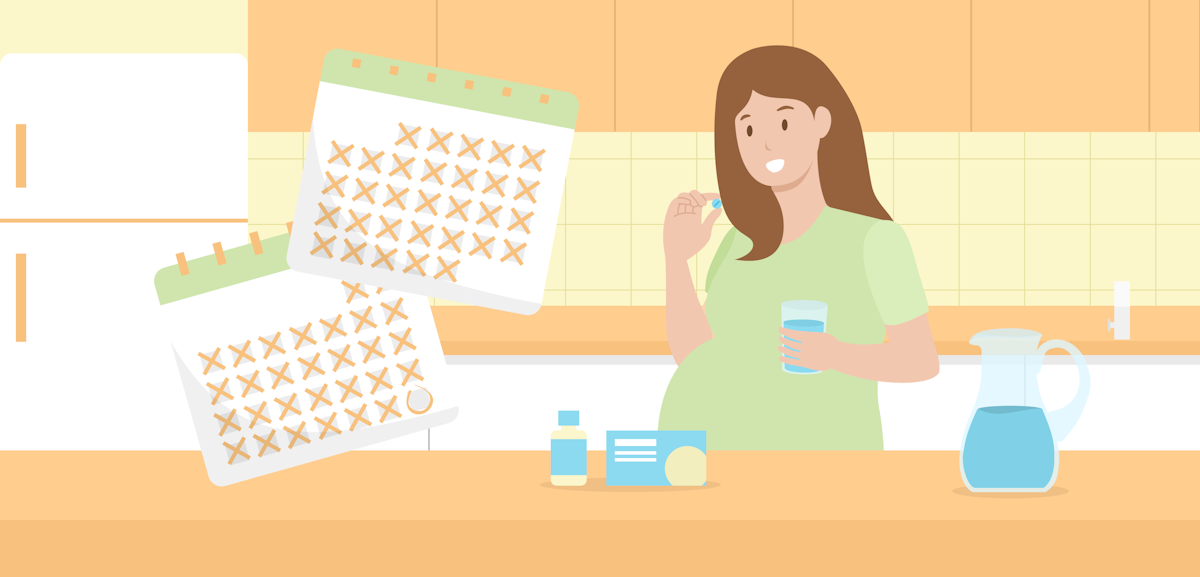Folic Acid for Pregnancy: What Filipina Moms Should Know
Pregnancy can be both a joyful and difficult journey.
With ample preparation and the right support, you can navigate
this journey to motherhood with ease.
Pregnancy is one of the most beautiful experiences in a woman’s life. As your baby grows, you will need guidance from doctors and your community to remain healthy throughout this exciting but trying period.
Whether this experience is new to you or not, remember to take extra care of yourself during this precious time. Going to doctor’s appointments and following a healthy diet plan helps to satisfy your nutritional needs as a pregnant mother.
Unfortunately, many pregnant women and women trying to become pregnant are unaware of the importance of prenatal vitamins in the development of the fetus. In the Philippines, 51.7% of pregnant women have folate deficiency according to a prevalence survey conducted in 2019. This is why one of the most important nutrients you should be taking this time is folic acid.

Why is folic acid important during pregnancy?
Folate is the natural form of folic acid. Folate and folic acid are different forms of vitamin B9. Vitamin B9 is a nutrient required by the body to make new cells. It helps to grow and divide new cells, to create and repair DNA, and other essential functions.
Women in their reproductive years need at least 400 micrograms of folic acid everyday.
Getting enough folate and folic acid is important for pregnant women as it is crucial for the growth and development of the fetus. Folic acid prevents congenital problems such as neural tube defects, which affect the embryo’s brain and spine.
There are many natural sources of folate. Because various food items contain this vitamin, it is easy to meet the daily minimum requirement with a healthy, balanced diet. Aside from a folate-rich food, folic acid supplements can complement an expecting mother’s diet to increase their folic acid intake. However, it is best to consult with a doctor regarding supplements and other changes to your diet.

Folic Acid Deficiency: What can happen?
Folate can easily be found in various food items. Therefore, folate deficiency can be a rare occurrence for most adults, especially if their diet includes several fruits and vegetables.
However, pregnant women are prone to folate deficiency. Since they are supporting their baby’s growth, they may not be getting enough folate from their regular diet.
There is a decreased risk of neural tube defects (NTDs) when the mother supplements with folic acid before and during their pregnancy.
NTDs occur when the embryos’ neural tubes do not form properly. This problem greatly affects the development of the brain and spinal cord. Birth-related complications such as this happen very early in the pregnancy, sometimes even before a woman knows she is pregnant.
Under their doctor’s supervision, a pregnant woman should increase their folate intake and can opt to supplement with folic acid to prevent NTDs.

When should you start taking folic acid?
During their reproductive years, all women regardless of age need to get 400 mcg of folic acid daily. If they require more folic acid, they may start taking supplements for weeks or even months before they become pregnant.
Some pregnant women may require more than the recommended 400 mcg. It is possible that these women are at risk or already have folic acid deficiency, and should only take higher doses of folic acid with the advice of their doctor.
After giving birth, breastfeeding mothers may continue their folate-rich diet and folic acid supplements with proper guidance from a healthcare professional.

Food rich in folic acid for pregnancy
Most children and adults get their folate in a regular, healthy diet. Folate can be found in a wide variety of fruits and vegetables, like:
Folic acid may also be added to grains, cereals, and other similar food items. Some examples of food enriched with folic acid include:
Whether you are already pregnant or thinking of becoming pregnant, ask your doctor about recommendations that will benefit you and your baby before making any changes to your diet.

Folic Acid Supplements
Remember to ask a healthcare provider first regarding increasing your folate intake and taking folic acid supplements. To prevent folic acid deficiency and other birth complications, consider taking Prenarex Plus.

Prenarex Plus
Prenarex Plus has 800 mcg of folic acid to support mothers during their pregnancy period. Since it contains other essential vitamins, it can be taken by pregnant women to prevent and treat deficiencies related to iron and vitamin B complex.
Maintaining a healthy diet and taking food supplements will give you and your baby the necessary support during your whole pregnancy. Be sure to make regular visits to your obstetrician who will help you have a guided and overall more positive pregnancy experience. During these doctor’s visits, remember to ask your doctor about your diet and let them know if you have any concerns at any point.
Pregnancy is a stage in a woman’s life where many changes happen all at once. While you may feel uneasy with so many changes during this time, be confident knowing that professional advice and accessible medicine are available when you need them. — (Nurturemed)

